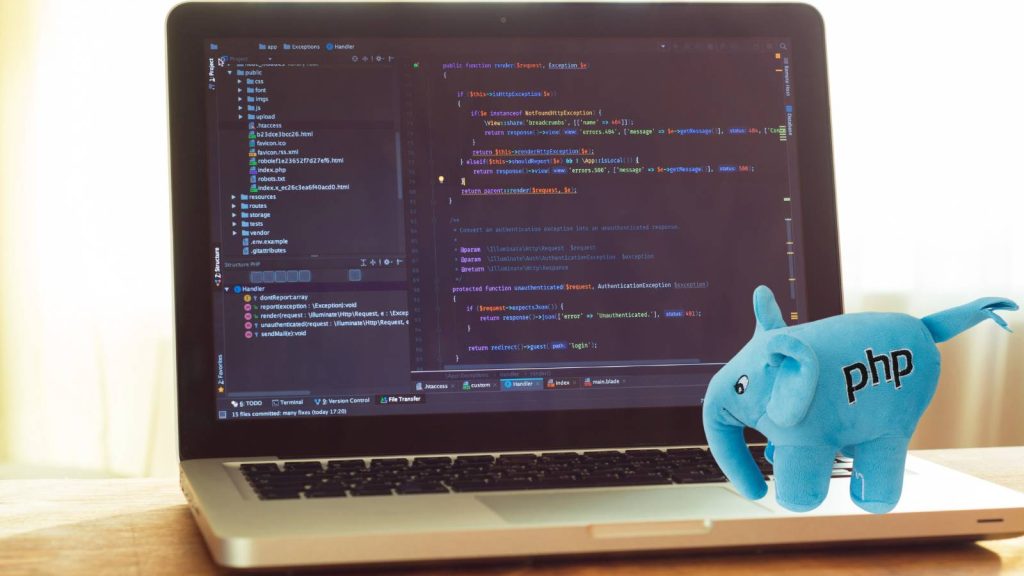In modern digital applications, performance is a critical factor for operational efficiency and user satisfaction. Memory optimization plays a key role in achieving faster response times, improved scalability, and lower infrastructure costs. Release of PHP 8.5 introduces several enhancements designed to reduce memory usage and increase runtime efficiency.
Know how PHP 8.5 improves memory management, the technical mechanisms behind these enhancements, and practical strategies for developers and organizations to optimize application performance effectively.
Understanding the Importance of Memory Optimization in PHP
Memory management is a cornerstone of application efficiency. Excessive memory usage in PHP can result in slow execution, increased garbage collection times, and higher server costs. Applications serving thousands of concurrent users are particularly susceptible, often facing performance bottlenecks that directly impact user experience.
Before the PHP 8.5 upgrade, our application frequently hit peak memory thresholds, causing response delays and sporadic crashes under heavy load. The situation highlighted the need for an upgrade combined with targeted optimization strategies.
PHP 8.5: Key Performance Enhancements
PHP 8.5 introduces several enhancements aimed at improving memory management and runtime efficiency:
- Optimized OPcache Handling: Faster script caching with lower memory footprint.
- Enhanced Garbage Collection: More aggressive cleanup of unused objects.
- Improved Data Structure Efficiency: Internal optimizations for arrays, strings, and other common types.
- Upgraded JIT (Just-In-Time) Engine: Reduces execution overhead and improves runtime memory allocation.
- Streamlined Function Execution: Lower memory consumption for frequently invoked operations.
These upgrades collectively provide a more memory-efficient runtime environment, making PHP 8.5 particularly suitable for high-traffic applications.
Diagnosing Memory Usage in Our Application
Before upgrading, our application exhibited the following metrics:
| Metric | Pre-PHP 8.5 |
|---|---|
| Average memory per request | 32MB |
| Peak memory per worker | 580MB |
| Response time | 210ms |
| Frequency of crashes | Moderate |
Through profiling, we identified several primary causes of memory overhead:
- Large arrays and collections loaded into memory simultaneously.
- Long-lived objects that persisted unnecessarily.
- Inefficient caching strategies leading to duplication of data.
These insights guided our approach to optimizing memory utilization during the PHP 8.5 migration.
Migrating to PHP 8.5: A Structured Approach
A methodical upgrade plan ensured a smooth transition:
1. Compatibility Audit: Verified that all extensions, libraries, and dependencies supported PHP 8.5.
2. Staging Implementation: Tested the application in a controlled environment to identify potential issues.
3. Code Refactoring: Addressed deprecated functions, optimized memory-heavy operations, and implemented generators where applicable.
4. Performance Profiling: Monitored memory usage and response times using tools such as Blackfire and Xdebug.
5. Gradual Rollout: Deployed PHP 8.5 incrementally in production, monitoring stability and performance.
This structured process minimized downtime and ensured measurable gains in memory efficiency.
Code-Level Optimizations That Delivered Results
While PHP 8.5 provides substantial internal optimizations, strategic code modifications were critical in maximizing memory reduction:
- Generators Instead of Large Arrays: Using
yieldfor iterating over large datasets reduced peak memory usage significantly.
- Object Reuse: Replaced repeated object creation with reusable instances.
- Lazy Loading: Loaded heavy resources only when required.
- Optimized Caching: Stored preprocessed data instead of raw datasets to reduce memory duplication.
These adjustments accounted for approximately 10–12% of the memory reduction, complementing the improvements provided by PHP 8.5 itself.
Benchmarking the Impact
Following the PHP 8.5 upgrade and code-level optimizations, we observed:
| Metric | Pre-PHP 8.5 | Post-PHP 8.5 |
|---|---|---|
| Average memory per request | 32MB | 25MB |
| Peak memory per worker | 580MB | 460MB |
| Response time | 210ms | 160ms |
| CPU usage | Moderate | Lower |
| Stability under load | Average | Excellent |
These results demonstrate a 20% reduction in memory usage and a 25% improvement in response times, highlighting the efficacy of PHP 8.5 in real-world scenarios.
Best Practices for Memory Optimization in PHP 8.5
For organizations seeking similar performance gains, the following practices are recommended:
- Enable and properly configure OPcache.
- Utilize generators for large datasets instead of loading arrays into memory.
- Apply lazy loading and object reuse where feasible.
- Monitor memory consumption with tools such as Blackfire, Xdebug, or New Relic.
- Optimize PHP-FPM and server configurations for production workloads.
Combining PHP 8.5 enhancements with deliberate code-level optimizations ensures maximal memory efficiency.
Who Benefits Most from Upgrading to PHP 8.5
Applications that stand to gain the most include:
- High-traffic websites and APIs
- SaaS platforms with multi-tenant architecture
- Microservices-based systems
- Applications performing complex data transformations
For such environments, the memory savings and improved stability translate directly into lower infrastructure costs and better user experience.
For PHP developers and organizations aiming for high-performance applications, PHP 8.5 represents a critical upgrade that delivers both immediate and long-term benefits.
FAQs
1. What is PHP 8.5 and why is it important?
PHP 8.5 is the latest major update in the PHP 8 series, focusing on performance improvements, memory optimization, and enhanced developer features. It’s important because it delivers faster execution, reduced memory usage, and better scalability for modern web applications.
2. How does PHP 8.5 improve memory usage?
PHP 8.5 introduces optimized OPcache handling, smarter garbage collection, and memory-efficient data structures. These changes reduce overhead from arrays, strings, and objects, helping applications run faster and consume less memory.
3. Is PHP 8.5 stable for production applications?
Yes, PHP 8.5 is fully production-ready. However, it’s recommended to check the compatibility of all libraries, extensions, and frameworks before migrating to avoid potential conflicts.
4. Can upgrading to PHP 8.5 improve app performance?
Absolutely. Alongside memory optimization, PHP 8.5 includes JIT engine improvements and faster function execution, which together reduce response times and enhance application throughput.
5. What are the main differences between PHP 8.5 and PHP 8.4?
PHP 8.5 focuses more on internal memory optimization, OPcache efficiency, and garbage collection improvements. It also introduces minor language enhancements, making it more resource-efficient than PHP 8.4.
6. How can developers measure memory improvements in PHP 8.5?
Developers can use built-in functions like memory_get_usage() and profiling tools such as Blackfire, Xdebug, and New Relic to monitor memory consumption and performance before and after the upgrade.
7. Which applications benefit most from PHP 8.5?
High-traffic websites, SaaS platforms, API-driven applications, and data-intensive services benefit most, as PHP 8.5 reduces memory usage, improves response time, and enhances scalability under heavy loads.
8. Does PHP 8.5 require code changes to improve memory?
While PHP 8.5 provides engine-level optimizations, combining it with code-level improvements like generators, lazy loading, and object reuse yields the best memory and performance results.
9. Will PHP 8.5 reduce server costs?
Yes. By lowering memory usage and improving performance, PHP 8.5 allows applications to handle more requests per server, potentially reducing infrastructure requirements and operational costs.
10. What are the future prospects after PHP 8.5?
PHP 8.6 and PHP 9 are expected to further enhance memory management, JIT performance, and asynchronous support. Migrating to PHP 8.5 now positions developers to benefit from future improvements with minimal effort.




